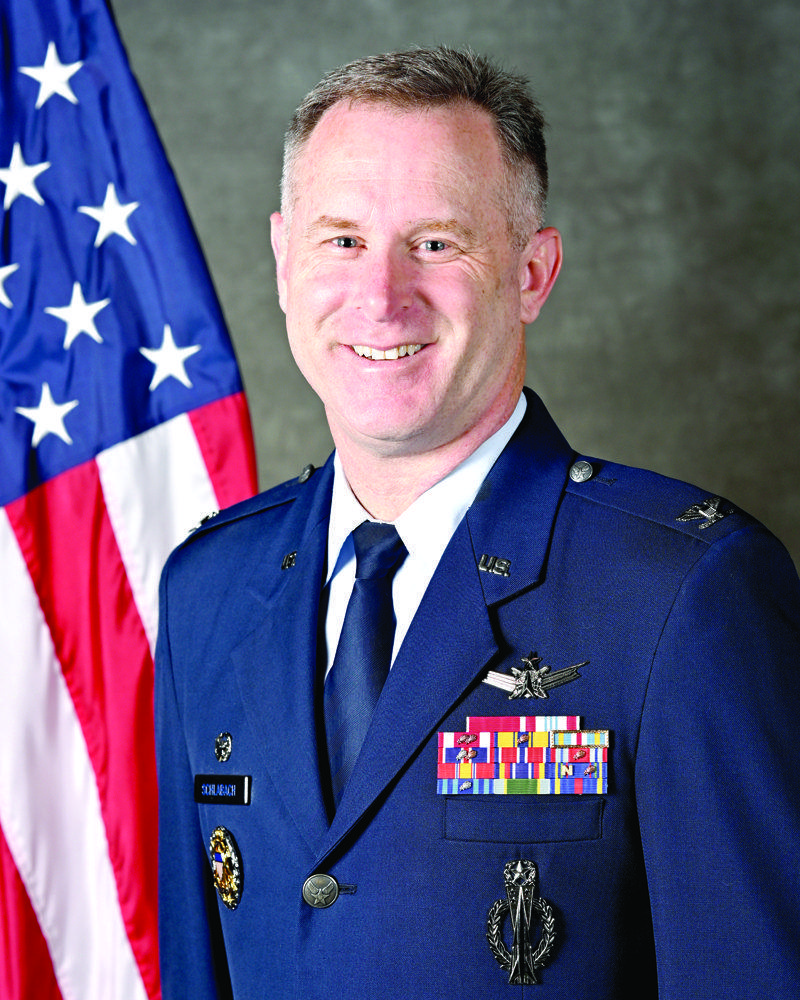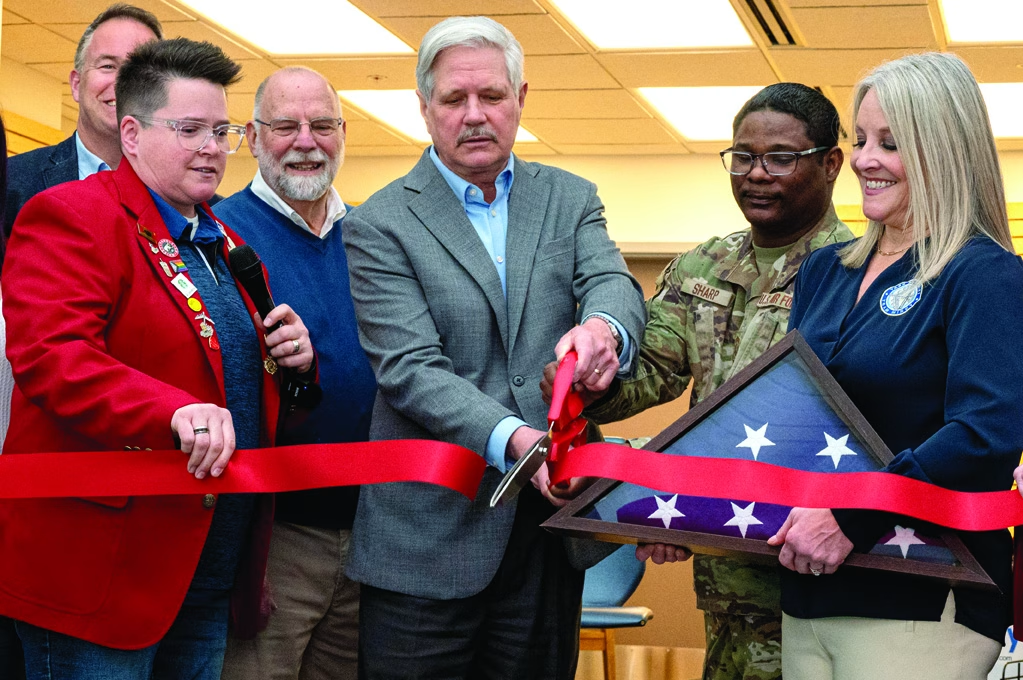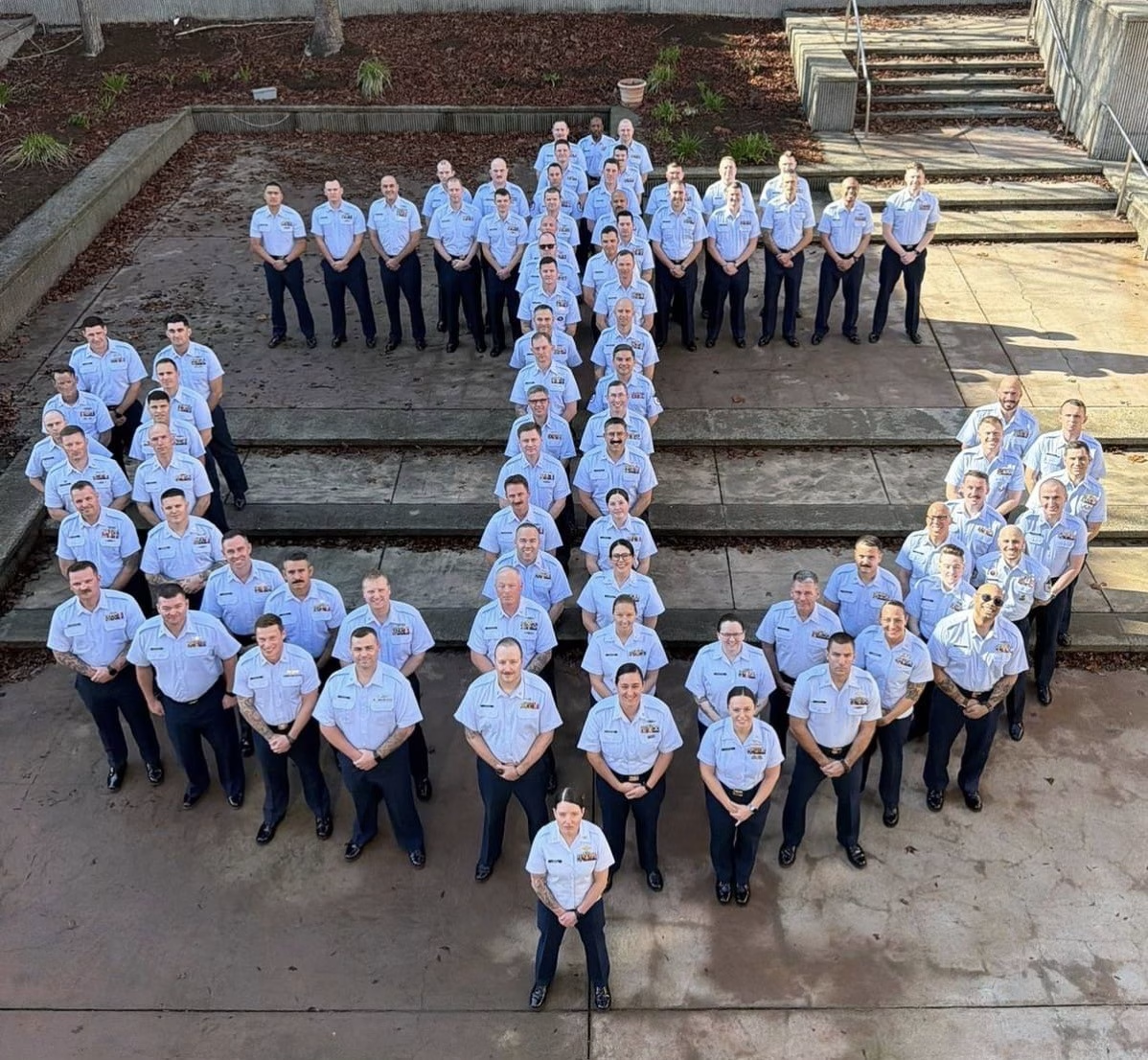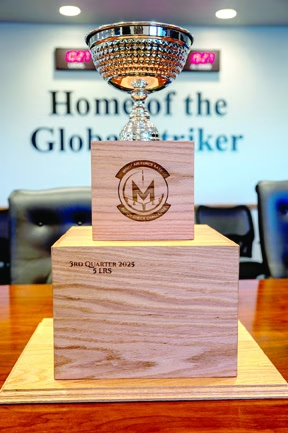
91st Missile Wing
Commander
For Col. James “Jimmy” Schlabach and his family, this is their second 4 year assignment to Minot Air Force Base, their first being in 2000 to 2004 when a then 2nd Lieutenant Schlabach would be in 91st MW operations. It was 2004 when the Schlabach’s left Minot. In between 2004 and their arrival back in Minot in 2020 Minot would experience the 2011 flood and the latest of the oil booms that would change the landscape of Minot, and northwest North Dakota.
Col Schlabach would become the commander of the 91st Operations Group with an office just down the hall from the office occupied at that time by then 91 MW Commander, Col Kenneth McGhee. Even though Col Schlabach was an integral part of the operations of the 91st, the move down the hall to become Commander came with new challenges and now Col Schlabach says that he realizes the difference, in that some of the final decisions are his to make. But in his words “that comes with the job”.
And what changes when you become the Commander?
“The gravity of the job. And by that I mean there’s no going up to anyone in the wing. So ultimately all of the decisions in this wing rest in this position.” Col Schlabach highly reveres the position of Wing Commander “and I am very cognizant that the job I do is very important because of that responsibility. Not because of me. Not because of who I am, but because of what the Airmen need this position to do. The Airmen need a wing commander to advocate, to speak for them; because there are so many ways that the only advocacy the receive is through the Wing Commander” Col Schlabach continues “and it’s something that I didn’t expect, but it kind of hit me one day, and there’s a level of weight with that, but that’s OK, because when I do things, I know I am doing it for Airmen. I’m a firm believer that if we take care of Airmen, the Airmen will take care of the mission.”
Schlabach goes on to describe what taking care of the Airmen entails. “Taking care of them means personally, as well as getting them the resources they need to do their job. In the environment they work in; it can mean enclosed shelters when it’s minus 20 degrees out, and giving them the gear and the equipment, all of those things. This position has the benefit and the privilege of knowing that when a Wing Commander says something, more people listen than the positions I used to hold. There is a responsibility to that, and a responsibility to the Airmen and the mission. The gravity of that changes. I didn’t realize that before, and I was 75 feet down the hall.” (in his former office.)
And with a smile Col Schlabach continues “it was surprising to me, the shift in a meeting by moving one chair over to the head of the table. I didn’t expect it. I should have, in hindsight, I should have seen it coming, but it is the privilege of a lifetime, that’s for sure.”
Col Schlabach started in Officer Training School in October of 1999 and “I’ve been wearing blue ever since” he says.
So, comparing the mission and challenges today vs. the mission and challenges back in 1999?
“The biggest difference is that we were at the end of the cold war, we were drawing down, and we didn’t have a peer to peer potential adversary. It was kind of like Michael Jordan and the Bulls, no one could really touch us. It was different, especially with nuclear and especially ICBM operations. There were a lot of questions back then that don’t apply today. Why are we pouring resources into this mission? Why are we here? Why do we continue to do this? When the former Soviet Union dissolved, we shut down 5 or 6 wings and kind of got down to bare bones. Today, you know Michael Jordan, Scottie Pippen, those guys retire, right, and so the game changes. The same thing with us. The global landscape has changed with potential adversaries, and this is not a one world power anymore. We have to look at things differently. Today’s Airmen when coming in to work in operations? There is a difference between 2024 and 1999. 25 years later, same weapon system. It’s like getting in a 1971 Buick. The 1971 Buick you started back in 1999 is a much different car than if you jumped in that Buick today and started it up in 2024.
But asked to do that mission against more and better equipped potential adversaries than there were in 1999. Just through age, and just through time we have a weapons system that is having more challenges today, but yet is asked to do more. So, for today’s Airmen coming into ICBM operations, whether that’s maintainers, defenders, or operators, they are being asked to do more with bigger challenges.
Not only that, the same type of computer system that we had in 1999, we still have in 2024. In the capabilities scale of what we had in 1999 and was possible in 1999 verses what is possible and what we have in 2024, there’s a magnitude of difference. Back in 1999, personal computers were pretty much all that we had, you know AOL, dial up, that’s what we had to deal with, where today I have a magnitude thousands of times faster in the palm of my hand on my cell phone, and yet we are operating essentially with the same hardware in 2024 that we were in 1999, and in a lot of aspects (the same hardware we had) back in the 70’s.
There’s a lot of capability that we don’t have down there from a technological aspect because we’ve maintained a weapons system that long. For an Airmen entering this world of combat capabilities, it’s a challenge because the infrastructure is so aged compared with everything else.”
Today’s Airmen?
“Well today’s Airmen have to unlearn a lot of things, where when I operated the weapons system originally, it made a lot of sense. It’s much more similar to what I grew up on. Today’s Airmen have to take everything and flush it out. For example, the screen we have downstairs (for training) is not a touch screen. Where most of your laptops and for sure your phone is all interactive with a touch screen. For us it’s a little rectangle instead of a pointer, and its very text based, almost like MS DOS.
There is a lot of unlearning that Airmen must do and then re-learn based on today’s needs. What I can say is that this generation and their ability to adapt, and be flexible, and the creativity that they have is immensely higher than my generation. Without millennials and Gen Z, we would be dead in the water. Because all of the challenges I talked about.
This generation with their attributes of flexibility, adaptability, and creativity, they are able to overcome things that I wouldn’t have even thought possible, even with an old weapons system. It’s eye watering to watch these folks deal with a 50 year-old weapons system but work with it using a modern mentality and to squeeze every last ounce of combat capability out of this weapons system. It’s really inspiring to watch. Without this generation we would lose the combat edge that we have. Really, they (this generation) are the combat edge. And that goes from our junior Airmen to our NCOs to our CGO’s, they are the combat edge that we have.”
Let’s discuss special moments in Col Schlabach’s career.
“The first one, and it seems like it was just yesterday. It was at Echo capsule here in Minot because this was my first base as a Lieutenant. My very first alert, when my crew partner went to get some rest, and he shut the curtain, and I can remember staring at that screen and thinking oh boy, this is real, and there are live ICBMs on the other end of that. That weight hits, and it hits every missileer the first time you do it, and It hits every maintenance technician the first time you do it. And every time anybody sees the live weapon in person, whether it’s on the screen, or in the launch facility, wherever it is…there is a gravity, and it’s kind of indescribable, because it hits” says Schlabach.
When trying to describe the true gravity of the situation that young Airmen find themselves in; “it’s August and we have missileers pulling their very first alert. It happens a lot this time of year. A lot of them graduated from college in May of 2023. A typical timeline is they generally get commissioned a few months after graduation, go to training, which is about 6 months, and then you PCS out to Minot, and you get some more training. In about 12 months’ time from when you graduate from college, you are in command and control of up to 10 nuclear weapons. 12 months is a short time frame, and that’s a huge amount of responsibility. But the process we have is refined to develop them and have them ready day one” says Schlabach.
So, what about Sentinel, the upgrade project for the ICBM’s nationwide, do we have a new timeline? What can the Minot community expect?
Schlabach shares “The message that I am giving folks, and that includes everybody, everybody from the oldest person here to the newest Airmen. Expect to operate Minutemen III in Minot your entire career, until we retire. Now there are new Airmen who will see Minot transition, and see it go from 100% Minuteman and through a gradual process that takes them up to 100% Sentinel.
But I really expect that anyone who is at Minot today, and if they come back to Minot later in their career, they will still be operating Minuteman III here. The point behind that message is that if we have things that we need to be fixed, and things that we need addressed, don’t expect Sentinel to fix them. We need to fix it with Minuteman. So, we need to advocate for resources, equipment, and for everything that goes along with maintaining our combat capability with Minuteman for the foreseeable future.
We are going to operate Minuteman for years and years to come. We need 3 legs of the nuclear triad to maintain deterrence and to make sure we have that deterrence. The need to maintain Minuteman III is here. Do we need Sentinel? I believe we do; we can see that through what our potential adversaries and what they are doing with their capabilities. Today I am OK defending what we do because that holds us accountable and makes sure that we just don’t keep doing what we are doing just because we want to keep doing it. We operate Minuteman III, and we operate the ICBM leg of the nuclear triad because there is an absolute need to have that combat capability. Not because it’s what we want to do, but because we absolutely have to do.”
And what’s the message that Col Schlabach gives first term Airmen, or even first-time personnel coming to Minot?
“You need to be an activities chameleon wherever you go. Learn to do the things in Minot, that can only be done in Minot. Learn to fish, hunt, and curl. Interact with the people of North Dakota. When you see young Airmen get involved with their local community, their outlook changes immensely. They see how awesome the community is, and how good the people are and how much the people want to pour into them. And when they feel part of where they live, it’s just not somewhere that I work, it somewhere that I live. There’s a lot of goodness here.”













